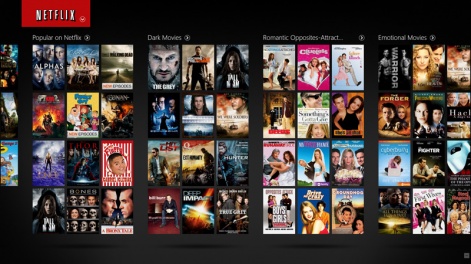Paid mobile games have had a shaky outlook of late, thanks to free-to-play revenues making them a rounding error in terms of the $40 billlion app store business.
But the thing to realize is that there's still a lot interest in games without in-app purchases and ads. You see games shoot up to the top of the App Store paid list, and there's are a few breakout paid hits every year.
Just because ads have become a way to make money, doesn't mean they aren't annoying to many people at a conceptual level.
Equally, in an age where any schmuck can create a game, is it any surprise that no-one really cares about games any more? And for developers, as I've argued before, the wider problem is that content is worthless.
This is why I think the future is for app stores to launch Netflix or PlayStation Plus-esque all-you-can-eat programs where one subscription fee nets you freebies and deals.
Less price, more value
Critically, this would add value in a market where the value of games has been reduced to nearly nothing.
Free-to-play games make money because the player can play the game and knows what they're getting when they spend their money. There's no risk involved.
Someone needs to do something similar for paid games.

Apple has demonstrated over past months that its desire is to push paid games, so why not try a program that could encourage people to check out paid games because they know they'll be getting great value for them at a low subscription cost?
The future is for app stores to launch Netflix or PlayStation Plus-esque all-you-can-eat programs.
It would be strong differentiation for any app store that launched such a system. It would also have the advantage that free-to-play games are coming under legal scrutiny.
Unlock demand
Netflix succeeds with a subscription model in large part because they were one of the first to market with a streaming library, were ubiquitous enough to release on almost everything, and did so at a competitive price.
People have stuck around on the service because Netflix keeps adding content, while also staking out a unique claim through exclusive shows.
And it's worked. While it's hard to nail down just which Netflix shows are actually successful because there's no ratings data available, enough shows like House of Cards and Orange is the New Black have won awards and become part of the larger pop culture lexicon. Much of this is purely due to the accessibility of Netflix's model.
Because for the model to succeed, it has to succeed on volume; millions of subscribers are necessary to justify the expenses of licensing and creating content. And for that reason, Netflix prices, selects and markets its service to gain that audience.
Good for developers
The good news for anyone doing this in mobile gaming is games are cheaper to create than movies, providing cheaper content acquisition.
Even a more curated service like PlayStation Plus - the closest gaming equivalent at this time - has become a necessity for anyone with a PlayStation. The $50 per year costs gets you new free games every month, occasionally netting you brand new games for free, or games that aren't that old - BioShock Infinite and Borderlands 2 both went free on PS+ within a year or two of their initial release, and they felt like real coups.
Certainly, something like PlayStation Plus for the App Store would be an interesting experiment. There are loads of high quality paid games available, and with developers desperate for any new revenue stream there would be little problem on the supply side.

On the demand side, a low-cost subscription to access a library of games would help to get paid games into the hands of people who haven't been willing to pay for games, or couldn't justify buying all of them.
In this way, a Netflix service for mobile games would succeed by creating value around mobile games; something that currently only happens in an inverted manner whenever Starbucks or Amazon gives away a paid game or a developer holds a sale.
Apple or Amazon?
The big question to my mind, however, who would try this first?
Apparently Amazon's already trying something with Unlocked that will give out free games and make certain free-to-play games totally free as well. If it succeeds for them, perhaps Apple or even Google would be willing to give it a try.
And why not? If it makes users happy, and developers generate more money and gain more players, then there's a clear opportunity.
Considering that the power brokers who operates app stores could do so in a low-risk way, with huge benefits to users and developers, I'd love to some company take the risk.
I'd love that company to be Apple.
But whoever does it, I think could be the salvation of paid games by driving demand and increasing their value.























